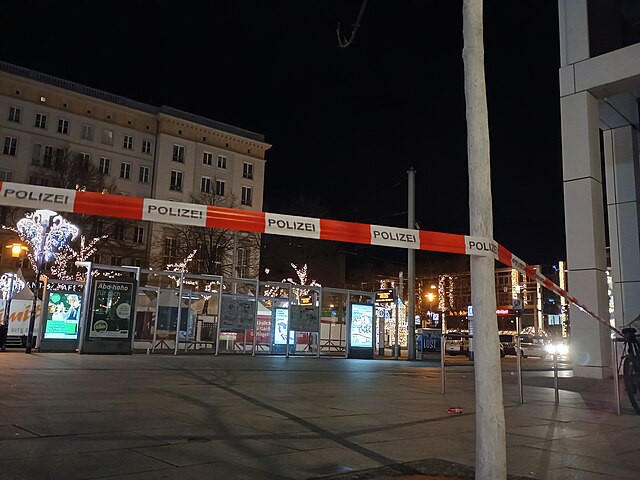Germany is grappling with shock and grief after a 50-year-old Saudi doctor drove a car into a crowded Christmas market in Magdeburg, killing five people and injuring more than 200. The attack has reignited concerns about public safety and immigration policies ahead of the country's federal elections in February.
The incident, which occurred Friday evening, brought the festive season to a devastating halt. Chancellor Olaf Scholz visited the Saxony-Anhalt capital on Saturday, expressing deep concern for the injured. More than 40 people are so seriously wounded "that we have to be very concerned about them," Scholz said. "It is important that we investigate and that we do so with the utmost precision and accuracy."
Authorities have identified the suspect as a psychiatrist who has lived in Germany since 2006. While his motives remain unclear, officials believe he acted alone. Police confirmed the arrest at a tram stop shortly after the attack, with video footage showing officers ordering the man to lie on the ground before taking him into custody. Saxony-Anhalt state premier Reiner Haseloff said the number of fatalities has risen to five, and the total number of injured is over 200.
The Saudi Arabian government condemned the attack, issuing a statement of condolences to the victims and their families. "The Kingdom affirms its position in rejecting violence and expresses its sympathy and sincere condolences to the families of the victims, and to the government and people of the Federal Republic of Germany," the Saudi foreign ministry stated.
The tragedy drew comparisons to the 2016 Berlin Christmas market attack, where an Islamic extremist plowed a truck into a festive crowd, killing 13. That event led to heightened security at markets across Germany, including the installation of barriers to prevent vehicular assaults. Despite these measures, Magdeburg was unprepared for the devastation. The city's mayor, visibly emotional, described the incident as a profound loss for the community.
Witnesses recounted scenes of horror as the black BMW tore through the crowded market. Thi Linh Chi Nguyen, a local manicurist, described the terrifying moments. "I saw a car drive through the market at high speed. People screamed, and a child was thrown into the air by the car," she said. Nguyen and her husband spent hours assisting the injured, bringing blankets from their home to help those exposed to the cold.
The aftermath has left the market cordoned off, with heavy police presence and visible remnants of the chaos. Thermal blankets lay scattered across the street, and officers with machine pistols guarded every entry point. Several cities canceled weekend Christmas markets in solidarity with Magdeburg, while others increased police presence.
The attack has also intensified political debates over security and immigration. Polls show rising support for far-right parties, such as the nationalist Alternative for Germany (AfD), amid frustrations over migration policies. Friedrich Merz, leader of the opposition Christian Democratic Union, criticized Chancellor Scholz's government for failing to ensure public safety. Members of Chancellor Scholz's government and opposition leaders have been vocal in calling for stricter immigration rules as Germany prepares for an early federal election on February 23.
Germany has faced a string of violent incidents in recent months, including a stabbing in Solingen in August that left three dead and eight wounded. These events have heightened anxiety nationwide and raised the stakes for February's elections, where public safety and migration are likely to dominate discourse.
Interior Minister Nancy Faeser ordered flags to be flown at half-staff and attended a memorial service in Magdeburg's cathedral alongside Scholz. As mourners lit candles and placed flowers near the site, a Berlin church choir sang "Amazing Grace" to offer solidarity. The community, and the nation as a whole, faces the difficult task of processing the tragedy while grappling with deeper questions about safety and unity.
"It is important that we investigate and that we do so with the utmost precision and accuracy," Scholz said.




